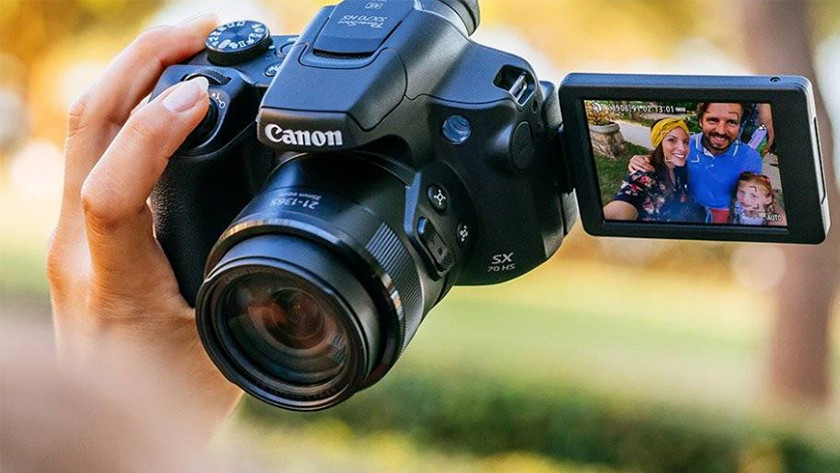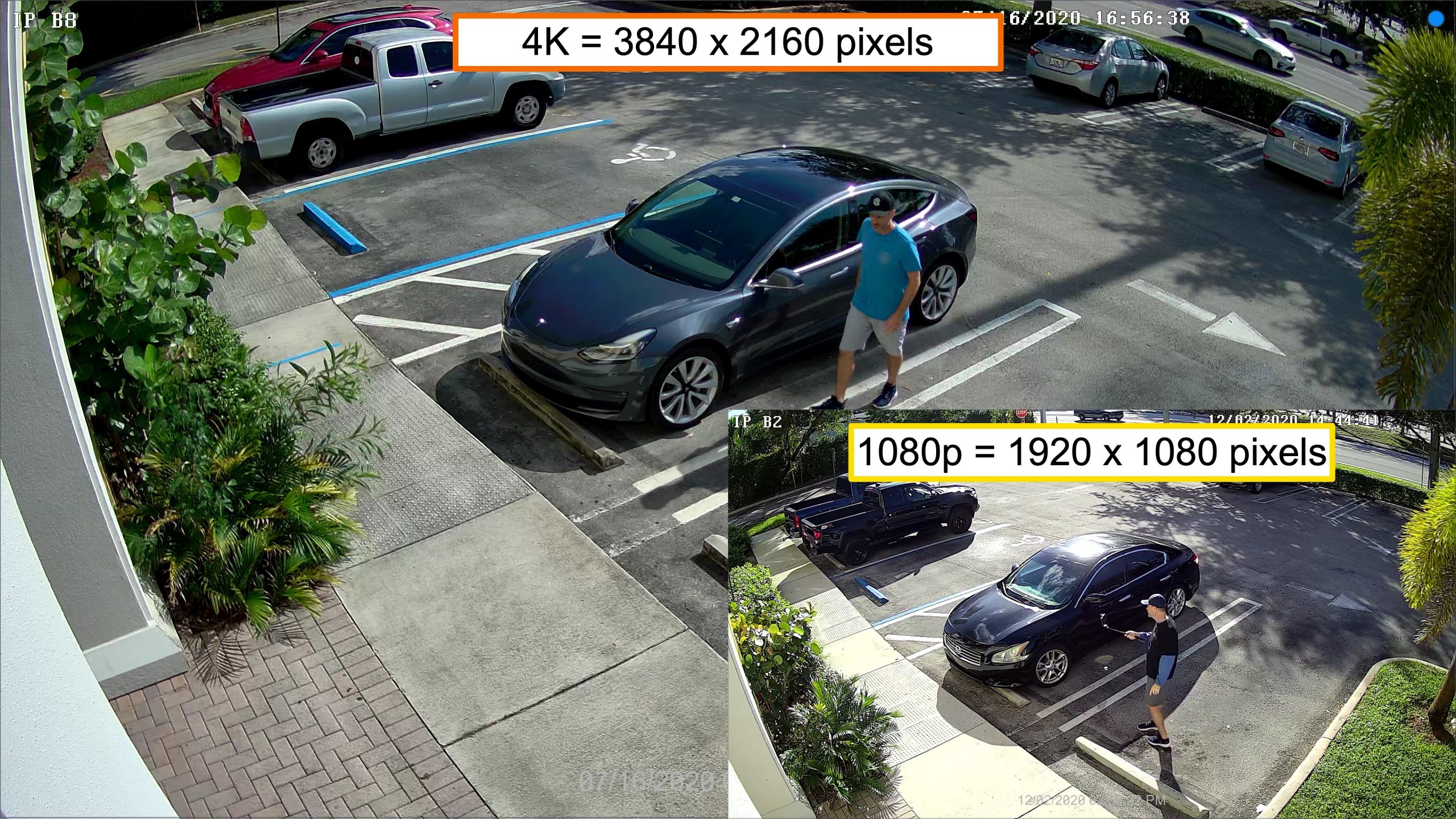Unveiling the Excellence of 4k: A Comprehensive Guide on 4k Resolution Cameras
Introduction
With the proliferation of digital photography and videography, an understanding of 4K resolution has become a must for both enthusiasts and professionals alike. This guide aims to cut through the technical jargon, giving you a comprehensive overview of 4K resolution cameras – what they are, why they should be your choice, key specifications, and practical usage tips.
What Exactly is 4K Resolution Camera?
A 4K resolution camera is a term within the photography realm that frequently brings up questions. In essence, this designation points towards the high-definition abilities of a digital camera poised at approximately 4,000 pixels. The term '4K' holds substantial weight among videography and digital video industries as it signifies a remarkable standard of cinematic quality.
Contrary to the previously popular 1080p HD, a 4K camera is in a league of its own because:
- It produces more detailed, sharper images due to a higher pixel count
- The quality does not degrade even when the image is enlarged or zoomed
- 4K resolution can capture even the minutest of details, something that its predecessor, the 1080p HD, often missed out on
This superior performance of the 4K resolution camera has cemented its place in the world of digital photography as it effortlessly brings out the nuances and intricate aesthetics.
The Role of 4K Resolution Cameras in Transforming the Face of Photography and Videography
The arrival of 4K resolution cameras has significantly reshaped the fields of photography and videography. Here's how:
- Heightened Image Details: 4K cameras, with their enviable pixel density, capture granular details that breathe life into images and videos. The texture and colors pop, making each shot vibrant and razor-sharp.
- Improved Dynamic Range: 4K cameras perform exceptionally well across lighting conditions, rendering a broader dynamic range. They beautifully capture the contrast between light and dark areas, thus infusing remarkable depth in every capture.
- Flexibility in Post-Production: 4K resolution extends immense latitude in post-production. It allows for intensive image cropping, frame stabilization, and changing the aspect ratio, all without compromising the quality.
- Top-Notch Low-Light Performance: With a superior ability to record fine details, 4K cameras deliver excellent low-light performance. This helps in retaining image quality regardless of the lighting environment.
In essence, 4K resolution cameras have equipped photographers and videographers with a rich toolkit, enabling them to create art with exceptional clarity and detail, making the viewing experience a sheer delight.
Why Choose a 4K Resolution Camera? Testing Affordability, Necessity, and Preferences
Selecting a 4K resolution camera can enrich your photography or videography experience in numerous ways. The factors favoring the adoption of 4K technology vary from overall cost-effectiveness and necessity for professional assignments to personal preference for higher resolution.
• Affordability: With the increasing demand for higher resolution cameras and market competition, the prices of 4K cameras are now more budget-friendly than before. This price drop has made it possible for more photography enthusiasts and aspiring professionals to access this revolutionary technology.

• Necessity: For professional photographers and videographers, a 4K resolution camera can be a necessity rather than a luxury. Many professional assignments now demand higher resolution outputs which 1080p HD cameras simply can't provide.

• Personal Preferences: For some, a desire for better image quality and the flexibility to experiment can drive the move toward 4K. With a 4K camera, you can take advantage of higher resolution to try more advanced techniques, such as reframing shots in post-production.
In conclusion, a 4K resolution camera can be a worthy investment, given its affordability, necessity for high-definition outputs in professional scenarios, and the advantage it provides for creative experimentation. The final decision should revolve around your specific needs, financial capacity, and personal preferences for image and video quality.
What Can You Look for in a 4K Camera? Decoding Key Specifications
Before endeavoring to purchase a 4K camera, several key specifications are worth considering to ensure you are well-informed of the product you're about to buy. Here, we decode the most significant elements to consider while purchasing a 4K camera.
- Sensor Size: The sensor size of a 4K camera plays a significant role in the quality of your images. How so? A larger sensor equates to capturing more light, which further results in superior image quality with outstanding depth of field. Full-frame sensors are often the best, offering top-notch low-light performance and shallower depth of field, while APS-C sensors balance price and performance, and Micro Four Thirds sensors are generally more affordable, albeit with slightly compromised image quality.
- Frame Rates: A higher frame rate is especially crucial for videographers, providing a smooth and realistic depiction of motion in videos. Standard 4K cameras offer 24 to 30 fps (frames per second), but if you're into high-speed action videography, look for 4K cameras offering 60fps or more to gain that cinematic fluidity.
- Connectivity Options: Wi-Fi, NFC, or Bluetooth connectivity can bring a world of difference in transferring photos and videos to other devices, enabling remote control over your camera, or sharing images on social media effortlessly.
- Durability: Sturdy construction with weather-sealing can ensure your camera stands the test of time and challenging outdoor conditions. So, consider the camera's build and how it would survive in your typical shooting scenarios.
- Lens Compatibility: Also, consider the range of compatible lenses available for the camera model. More lens options mean more creative flexibility.
By understanding these key features of a 4K camera, you can make an informed decision that suits both your photographic needs and budget. Deciphering these critical specifications of a 4K camera can indeed be your stepping stone towards achieving photographic excellence.
How Can You Maximize Your Use of a 4K Resolution Camera? – Practical Usage Tips
Knowing how to efficiently operate and maximize your 4K resolution camera's capabilities can elevate your photography and videography skills to new heights. Here are some handy tips and tricks:
Familiarize Yourself with Camera Features
Every camera model has a unique set of features and controls. Spend time to familiarize yourself with your 4K camera's specifications, functions, and settings. This can enhance your understanding of different features like autofocus, ISO levels, aperture, and much more, thus allowing you to utilize them optimally.
Practice in Diverse Lighting Conditions
4K cameras excel in various lighting conditions. To make the best use of this feature, expose your camera to multiple lighting situations. This could range from shooting under harsh sunlight to capturing images in low light. This practical exposure will aid in understanding your camera's performance under different light intensities.
Experiment with Different Frame Rates
Different frame rates can drastically alter the feel and look of your video. Experimenting with faster or slower frame rates permits you to produce videos with a distinct aesthetic appeal. For fluid motion, use higher frame rates; for creating dramatic slow-motion videos, drop the frame rates.
Leverage High Resolution for Post-Production
The high resolution of 4K cameras provides flexibility during post-processing. Make the most of it to crop images or stabilize videos without losing out on significant details. Plus, having extra pixels can be beneficial for color grading, allowing you to modify your video's look without compromising its quality.
Use Accessories
Enhance your 4K camera's performance and improve your overall output quality by using relevant accessories. These could include tripods for stability, lenses for different shooting needs and styles, and external microphones for superior audio.
By implementing these tips and embracing continuous practice, you can optimize your use of a 4K resolution camera, resulting in a remarkable improvement in your photography and videography projects.
Conclusion
To sum up, 4K resolution cameras have transformed the landscape of digital photography and videography by delivering superior image quality and greater post-production flexibility. Whether you're an amateur or a seasoned professional, understanding and utilizing the power of 4K can significantly enhance your visual storytelling capabilities.
Related FAQs about what is 4k resolution camera
What is the real-life application of 4K resolution cameras?
4K resolution cameras are mostly used for professional video production, including advertising, documentaries, and films. The high resolution provides crystal-clear images, elevating the professional quality of the output. They're also excellent for wildlife, landscape, and portrait photography, offering vibrant detailing. Additionally, they're popular for creating content for social media platforms like YouTube and Instagram.
What are the key considerations for investing in a 4K resolution camera?
Key considerations for investing in a 4K resolution camera include understanding your specific needs, the camera's sensor size, maximum and variable frame rates, connectivity options, durability, and lens compatibility. Equally important is finding a camera that suits your budget while delivering high-quality images and videos.
Is the 4K camera right for beginners or just for professionals?
A 4K camera can be beneficial for both beginners and professionals. For beginners, investing in a 4K camera could provide a foundation for learning advanced photography techniques. For professionals, a 4K camera is often a must-have for delivering top-tier video footage and high-resolution images.


